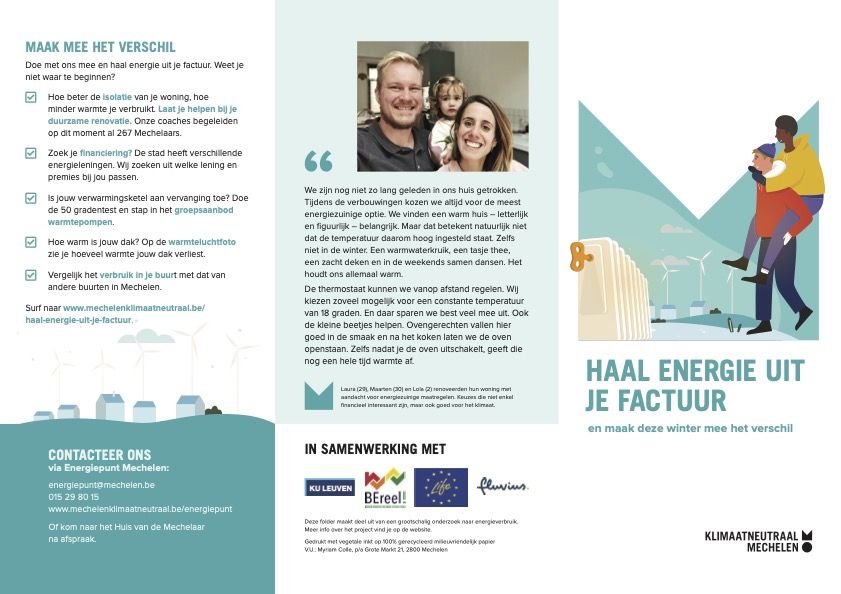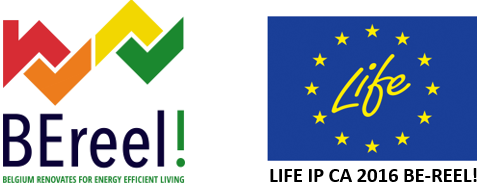The project
"Energy invoice communication" in Mechelen is a large-scale study examining the impact of several motivational techniques on energy consumption.
For this study, four seasonal folder have been distributed. Each one provides information on the average gas and electricity consumption, as well as the consumption of the 20% most efficient households in the neighborhood. With this information, Mechelen residents can compare their own energy consumption. The content of the leaflet also varies from neighborhood to neighborhood. Energy consumption can be expressed in euros, CO2, or a combination of both. Additionally, half of all neighborhoods receive an extra incentive with each leaflet. The first mailing includes a meter form for recording personal usage. The second mailing includes memo stickers with household tips. The winter edition comes with a radiator key (instructions included). And the last spring leaflet contains energy-saving cleaning and DIY tips.
This results in a total of 6 different condition groups, randomly assigned across 90 different neighbourhoods. Everyone received their folder four times over the course of a year, each time with new information, a testimonial, and seasonal tips to put into practice. We have a summer, autumn, winter, and spring folder.
The goal is to encourage residents to save energy through behavioral changes and collectively reduce the city's CO2 emissions. For additional information on energy-efficient living and renovation, tips, and consumption, Mechelen residents can visit this project page. You can also download additional tips there.
Based on the consumption data from the grid operator Fluvius, the City of Mechelen - in collaboration with the University of Leuven (KUL) - has analyzed for 2 years whether the folders and incentives have contributed to reducing the energy consumption of Mechelen residents compared to other Flemish cities. We also examine which motivational technique has worked best and whether there is a lasting effect after the experimental phase is completed.
The research started in June 2021, involving nearly 37.000 households. At the moment, the results are being processed. The intention is to extend the motivational techniques that work best to other cities and municipalities across Flanders in the future. The use of insights from behavioral sciences through the energy bill is indeed one of the action points outlined in the Flemish Energy and Climate Plan 2030.
The steering committee
In 2020, a steering committee was established to co-create the design of the folder. The following organizations are part of the steering committee:
- Department of the Chancellery and Foreign Affairs
- Energy Contractors (Natuurpunt)
- Energie ID
- Fluvius (grid operator)
- KU Leuven (University)
- Febeg (Federation of Belgian Electricity and Gas Companies)
- SERV (Social and Economic Council of Flanders)
- Testaankoop Test-Achats/Test-Aankoop
- VEKA (Flemish Energy and Climate Agency)
- VOCVO (Flemish Support Center for Adult Education)
- VREG (Flemish Regulator for the Electricity and Gas Market)
- VVSG (Association of Flemish Cities and Municipalities)
Once the results of the research are available, the partners will also be involved in policy recommendations and further implementation.

